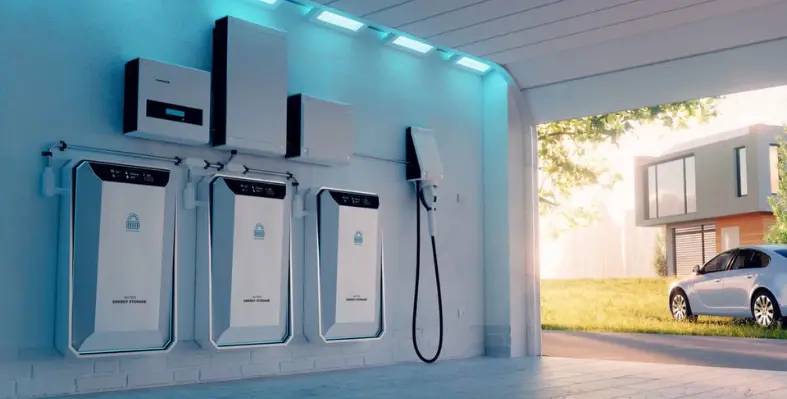UL Solutions, a global leader in applied safety science, has introduced a new testing protocol designed to meet the needs of fire service organisations for enhanced evaluations of battery energy storage systems (BESS) for residential applications.
Typically paired with rooftop solar installations and, occasionally, wind turbines, residential BESS units enable homeowners to store excess solar or wind energy for use at any time, even when solar or wind resources are unavailable. These systems can protect users from power outages and grid fluctuations, ensuring a consistent energy supply. Additionally, they offer cost savings by allowing users to utilise the energy already generated and stored.
UL Solutions: the BESS expert
Battery storage is essential for the energy transition, with residential battery storage playing a significant role. Rising energy prices, increased blackout risks, and government incentives are driving interest in residential energy storage systems. The market for residential BESS is projected to grow significantly, with an estimated value of US$898mn in 2023, expected to exceed US$2bn by 2028.
The newly published UL 9540B Outline of Investigation for Large-Scale Fire Test for Residential Battery Energy Storage Systems introduces a testing protocol featuring a robust ignition scenario and stringent acceptance criteria for residential BESS. This new test method addresses the fire propagation behaviour of a BESS in the event of a thermal runaway propagation incident leading to an internal fire during its lifespan.
Since battery energy storage systems were first deployed a decade ago, UL Solutions has been at the forefront of addressing associated fire safety concerns. The company has collaborated with fire protection and battery experts, original equipment manufacturers, code authorities, and other key stakeholders to enhance test methods for evaluating thermal runaway fire propagation in BESS. UL 9540, the Standard for Energy Storage Systems and Equipment, and UL 9540A, the Standard for Test Method for Evaluating Thermal Runaway Fire Propagation in Battery Energy Storage Systems, were developed to ensure the safety of and assess thermal runaway propagation behaviour in energy storage systems. UL 9540B evaluates the fire propagation behaviour of residential BESS and complements UL 9540 and UL 9540A, providing a comprehensive approach to safety and fire behaviour.
It is important to note that UL 9540B testing is not intended to replace UL 9540A fire propagation testing for compliance with BESS installation codes and standards such as the IFC and NFPA 855. Instead, this test sequence aims to generate large-scale fire data to assist fire officials in evaluating residential BESS installations.
“UL Solutions listened to fire service concerns, and together, we developed a test solution that provides an acceptable level of fire safety without introducing unnecessary impediments to the deployment of safer, cost-effective residential battery energy storage systems,” said Robert Marshall, deputy chief of San Mateo Consolidated Fire Protection District.
“At UL Solutions, we are committed to using our safety science expertise to help our many stakeholders find solutions to the challenges arising in the rapidly evolving energy transition landscape,” said Milan Dotlich, vice president and general manager of the UL Solutions Energy and Industrial Automation group. “The development of UL 9540B in just a few months demonstrates our commitment to quickly providing effective safety resources to support the transition to renewable energy.”








